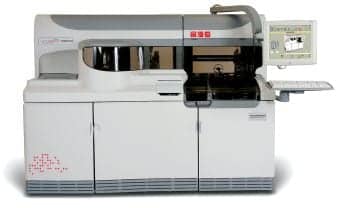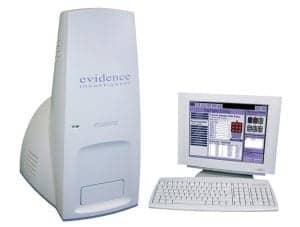It has been 34 years since scientist Rosalyn Yalow received the Nobel Prize for the work she did jointly with Solomon Berson in developing the very first radioimmunoassay (RIA), the end result of a study of diabetes and insulin the dynamic duo undertook in 1959. And with the success of that insulin RIA, Yalow and Berson, who died in 1972, went on to extend their success to other hormones, such as corticotropin, gastrin, parathyroid hormone, and growth hormone, making significant discoveries in their physiology along the way.
The development of the Enzyme Multiplied Immunoassay Technique in the late 1980s enabled the automation of immunoassay testing and its move into the general lab environment. Today, the dominant immunoassay analyzer technology is chemiluminescence, which offers greater sensitivity than previous methodologies. Electrochemiluminescence and Luminescent Oxygen Channeling immunoassay are newer alternatives, with the latter used primarily in research.
The integration of chemistry and immunoassay onto one system has captured the attention of laboratories everywhere, and as such we’ve come a long way since the days of Yalow’s and Berson’s major advance in clinical biochemistry.
—Will Campbell
VITROS 3600 Immunodiagnostic System

Combines three technologies for enhanced performance
The VITROS 3600 Immunodiagnostic System from Ortho Clinical Diagnostics, Raritan, NJ, is a new high-capacity immunoassay system that provides labs with a solution to address quality, labor, and cost challenges. The system combines three technologies that are designed to consistently produce quality test results: MicroWell technology with enhanced chemiluminescence performs with small sample-volume requirements across a broad range of diseases; MicroSensor technology automatically performs sample quality indices checks; andIntellicheck technology verifies system operations and reduces error potential by providing real-time operator notification and tracking. Additionally, the processing speed, onboard reagent capacities, and uninterrupted workflow allow labs to address peak workloads and decrease turnaround times.
Ortho Clinical Diagnostics
(800) 828-6316
www.orthoclinical.com

UniCel DxI 600 Access Immunoassay System
Ideal for labs supporting 200- to 400-bed hospitals
Designed for midvolume laboratories, the UniCel DxI 600 Access Immunoassay System from Beckman Coulter Inc, Brea, Calif, has the ability to process up to 200 tests per hour with continuous loading of routine and STAT samples. Additionally, the DxI 600 offers an onboard capacity of up to 60 samples with refrigerated storage for 50 reagent packs. The system also features point-in-space pipetting technology aligned with CLSI guidelines and continuous loading capability. The DxI 600 can facilitate workstation consolidation and includes high-quality assays such as AccuTnI Troponin I and Hybritech PSA and free PSA. The system uses the same reagent pack as other UniCel and Access immunoassay analyzers.
Beckman Coulter Inc
(800) 352-3433
www.beckmancoulter.com
Evidence Investigator

Benchtop semiautomated analyzer
The Evidence Investigator from Randox Laboratories Ltd, Oceanside, Calif, is a benchtop semiautomated analyzer that utilizes Biochip Array Technology for multianalyte testing. The system has a throughput of 162 samples per hour, multiplied by the number of tests performed per biochip. A single 9 mm2 biochip acts as the reaction vessel, replacing multiple cuvettes. The company’s biochips hold up to 25 tests. The analyzer is suitable for use in a wide variety of settings, such as multiplexing for use in research, pharmaceutical, and veterinary areas. An extensive range of arrays are available to run on the Evidence Investigator, including cardiac, cytokine, drugs of abuse, cerebral, thyroid, adhesion molecules, tumor monitoring, fertility, Ranplex CRC DNA array, growth promoter, and antimicrobial arrays.
Randox Laboratories Ltd
(760) 639-1500
www.randox.com


